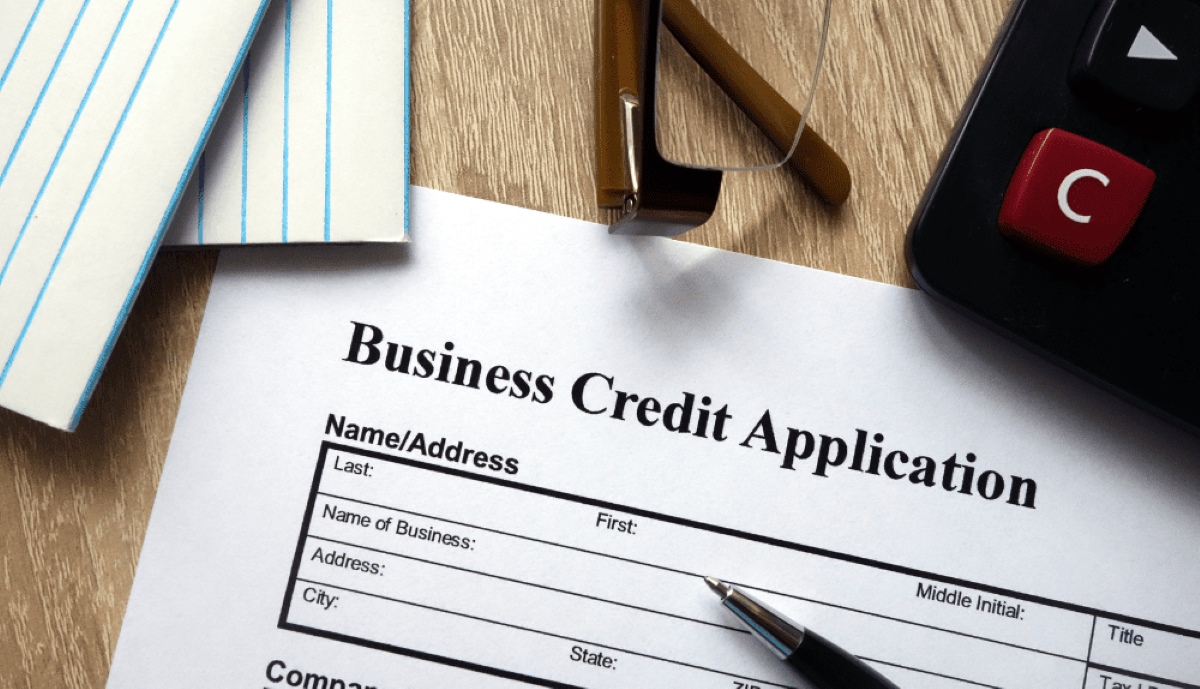

Finance
How To Outsmart The Credit Bureaus
Modified: January 15, 2024
Learn effective strategies to outsmart the credit bureaus and take control of your finances.##
(Many of the links in this article redirect to a specific reviewed product. Your purchase of these products through affiliate links helps to generate commission for LiveWell, at no extra cost. Learn more)
Table of Contents
- Introduction
- Understanding Credit Bureaus
- Key Factors Affecting Credit Scores
- Common Credit Reporting Errors
- Checking and Monitoring Your Credit Reports
- Disputing Inaccurate Information
- Building a Positive Credit History
- Managing Credit Utilization
- Paying Off Debt Strategically
- Dealing with Collections and Negative Accounts
- Protecting Your Identity and Preventing Fraud
- Final Tips to Outsmart the Credit Bureaus
- Conclusion
Introduction
Credit bureaus play a crucial role in our financial lives, as they compile and maintain our credit information. This information is used by lenders, creditors, and even employers to assess our financial trustworthiness.
Understanding how credit bureaus operate and the factors that affect our credit scores is essential for maintaining a healthy financial profile. It allows us to make informed decisions about borrowing, applying for credit, and even securing employment opportunities.
In this article, we will explore strategies to outsmart the credit bureaus and improve our creditworthiness. We will delve into common credit reporting errors, ways to monitor and dispute inaccurate information, and methods to build and maintain a positive credit history. Additionally, we will discuss techniques for managing credit utilization and strategically paying off debt. Furthermore, we will explore how to deal with collections and negative accounts, as well as ways to protect our identity and prevent fraud.
By following the tips and insights shared in this article, you will be empowered to take control of your credit information and unlock financial opportunities that were once out of reach. So let’s dive in and discover how to outsmart the credit bureaus!
Understanding Credit Bureaus
Credit bureaus, also known as credit reporting agencies, are companies that collect and maintain consumer credit information. The three major credit bureaus in the United States are Equifax, Experian, and TransUnion.
These bureaus gather data from various sources, such as lenders, financial institutions, credit card companies, and public records. They compile this information into credit reports, which summarize an individual’s credit history and financial behavior.
Credit reports typically include personal identifying information, credit accounts, payment history, credit inquiries, public records (such as bankruptcies or liens), and other relevant data. This information is used to calculate credit scores, which lenders and creditors use to evaluate creditworthiness.
It’s important to note that the information collected by credit bureaus can significantly impact an individual’s ability to secure loans, obtain favorable interest rates, and even secure employment. Therefore, understanding how credit bureaus work is crucial for managing one’s credit effectively.
Credit bureaus operate on a vast scale, processing and updating millions of pieces of consumer credit data every day. However, they are not immune to errors or outdated information. It’s essential to regularly review your credit reports to identify any inaccuracies or discrepancies that could negatively impact your creditworthiness.
Keep in mind that credit bureaus are regulated by the Fair Credit Reporting Act (FCRA), which ensures the accuracy, fairness, and privacy of consumer information. You have the right to dispute any inaccurate information on your credit report and have it corrected.
Understanding the inner workings of credit bureaus and being aware of your rights as a consumer will empower you to take control of your credit information and make informed decisions about your financial future.
Key Factors Affecting Credit Scores
Credit scores are numerical representations of an individual’s creditworthiness. They are derived from the information found in credit reports and play a vital role in determining whether you can secure credit, the interest rates you’ll be offered, and the overall terms of your financial agreements.
Understanding the key factors that affect credit scores is essential for improving and maintaining a favorable credit profile. Let’s explore these factors:
- Payment History: This is the most significant factor influencing credit scores. It considers whether you’ve made payments on time, missed any payments, or had any late payments or defaults. Making consistent, on-time payments is crucial for maintaining a positive credit history.
- Credit Utilization: This factor looks at the percentage of your credit limit that you’ve used. It’s recommended to keep your credit utilization ratio below 30% to demonstrate responsible credit management.
- Length of Credit History: The length of time you’ve had credit accounts impacts your credit score. A longer credit history generally indicates stability and responsible credit usage.
- Credit Mix: Having a diverse mix of credit accounts, such as credit cards, loans, and mortgages, can positively impact your credit score. It shows that you can handle different types of credit responsibly.
- New Credit Inquiries: Applying for new credit can temporarily lower your credit score due to the increased risk associated with taking on additional debt. Limit the number of new credit applications you make to minimize the impact on your score.
It’s important to note that every individual’s credit profile and score calculation are unique. Each credit bureau may also have slight variations in how they weigh these factors. However, the general principles outlined above serve as a guide to help you understand and improve your credit score.
By focusing on maintaining a positive payment history, managing your credit utilization wisely, building a diverse credit mix, and minimizing new credit inquiries, you can take proactive steps toward improving your creditworthiness and achieving your financial goals.
Common Credit Reporting Errors
Credit reports can sometimes contain errors that negatively impact your creditworthiness. It’s important to regularly review your credit reports from all three major credit bureaus to identify and dispute any inaccuracies. Here are some common credit reporting errors to watch out for:
- Incorrect personal information: Check that your name, address, social security number, and other personal details are accurate. Errors in personal information can lead to confusion and potential identity theft concerns.
- Inaccurate account information: Verify the details of your credit accounts, including balances, payment history, and account statuses. Look for any accounts that don’t belong to you or any missing accounts that should be listed.
- Duplicate accounts: Sometimes, the same account may appear multiple times on your credit report, making it seem like you have more debt than you actually do. Duplicate accounts can negatively impact your credit utilization and overall creditworthiness.
- Outdated negative information: Negative information, such as late payments or collection accounts, should be removed from your credit report after a specific period, typically seven years. If you find outdated negative information still present, you have the right to dispute it.
- Mixed-up credit files: Occasionally, credit bureaus may mistakenly merge your credit information with someone else’s who has a similar name or identifier. This can lead to incorrect data appearing on your credit report, potentially harming your credit score.
If you discover any of these errors or any other inaccuracies on your credit report, it’s crucial to take immediate action to correct them. Start by contacting the credit bureau(s) reporting the errors and provide them with any supporting documentation. The credit bureaus are required to investigate your dispute within a specific time frame and make necessary corrections if the information is indeed inaccurate.
Regularly monitoring your credit reports will help you catch these errors early and protect your creditworthiness. You are entitled to one free credit report from each of the three bureaus every year. It’s advisable to stagger your requests and obtain a report from one bureau every four months, allowing you to monitor your credit throughout the year.
By diligently reviewing your credit reports and addressing any errors promptly, you can ensure the accuracy of your credit information and maintain a strong credit profile.
Checking and Monitoring Your Credit Reports
Regularly checking and monitoring your credit reports is a crucial step in managing your credit effectively. It allows you to stay informed about your credit standing, identify errors, and detect any signs of fraudulent activity. Here are some tips on how to check and monitor your credit reports:
- Request your credit reports: Obtain a free copy of your credit report from each of the three major credit bureaus – Equifax, Experian, and TransUnion. You can do this once a year through AnnualCreditReport.com or by contacting each bureau individually.
- Review your reports thoroughly: Carefully examine each section of your credit reports, including personal information, credit accounts, payment history, and public records. Look out for any errors, discrepancies, or suspicious activity.
- Check for unauthorized accounts: Verify that all the credit accounts listed on your report belong to you. If you notice any unrecognized accounts or applications, it could be a sign of identity theft.
- Monitor credit inquiries: Keep track of the inquiries section on your credit reports. If you see unfamiliar inquiries, it’s possible someone has tried to access your credit information without your knowledge.
- Set up credit monitoring: Consider using a credit monitoring service or subscribing to alerts provided by the credit bureaus. These services notify you of any changes or suspicious activity on your credit reports.
- Report errors or suspicious activity: If you find any errors, discrepancies, or signs of fraudulent activity, contact the credit bureaus immediately to initiate a dispute and investigation. Provide any supporting documentation to support your case.
- Monitor your credit regularly: Make it a habit to check your credit reports periodically. By monitoring your credit regularly, you can identify and address any issues promptly, ensuring the accuracy and integrity of your credit information.
Remember, checking and monitoring your credit reports is an ongoing process. It’s not enough to review them once a year – it’s recommended to monitor them at least once every few months or utilize a credit monitoring service for continuous monitoring.
By staying vigilant and proactive in checking and monitoring your credit reports, you can maintain control of your credit information, protect yourself from identity theft, and ensure your creditworthiness remains intact.
Disputing Inaccurate Information
If you discover any inaccurate information on your credit reports, it’s crucial to take action to dispute and correct it. Here are the steps to follow when disputing inaccurate information:
- Identify the inaccuracies: Thoroughly review your credit reports and identify the specific information that you believe is incorrect. This can include errors in personal information, account details, payment history, or any other discrepancy you come across.
- Gather supporting documentation: Collect any supporting evidence or documentation that proves the inaccuracies on your credit reports. This can include statements, receipts, or any other proof of payments or communication with the creditor or lender.
- Write a dispute letter: Compose a detailed and concise dispute letter to the credit bureau(s) reporting the inaccurate information. Clearly explain the errors and provide the supporting documentation to strengthen your case. Make sure to include your name, address, and account information in the letter.
- Send your dispute letter: Mail your dispute letter to the appropriate credit bureau(s) via certified mail with a return receipt requested. This provides proof that your letter was delivered.
- Keep copies of everything: Make copies of your dispute letter and all supporting documents for your records. Keep track of the dates and times you sent the documents and any other correspondence with the credit bureau(s) related to the dispute.
- Follow up and stay persistent: Allow the credit bureau(s) 30 to 45 days to investigate your dispute. If you do not receive a response or are not satisfied with the resolution, follow up directly with the credit bureau(s) to ensure your dispute is being addressed appropriately.
- Monitor the changes: Keep a close eye on your credit reports after disputing inaccurate information. Once the investigation is complete, the credit bureaus should notify you of any corrections or changes made to your credit reports.
Remember to dispute inaccurate information with each credit bureau separately, as they operate independently and may have different data on file. Additionally, you can request that the credit bureau(s) send a corrected copy of your credit report to any creditor or lender who has received the inaccurate information within the past six months.
Disputing inaccurate information can be a time-consuming process, but it’s essential for maintaining the accuracy of your credit reports. By taking the necessary steps and staying persistent, you can ensure that your credit information is reliable and reflects your true creditworthiness.
Building a Positive Credit History
Having a strong credit history is vital for achieving your financial goals. It demonstrates to lenders and creditors that you are a responsible borrower and can be trusted with credit. Here are some strategies for building a positive credit history:
- Open a credit account: If you don’t have any credit history, consider opening a secured credit card or becoming an authorized user on someone else’s credit card. Responsible use of these accounts can help you establish a positive credit history.
- Make payments on time: Consistently paying your bills and credit obligations on time is crucial for building a positive credit history. Late payments can have a significant negative impact on your credit score.
- Use credit sparingly: Avoid maxing out your credit cards or taking on excessive debt. Keeping your credit utilization ratio low demonstrates responsible credit management.
- Keep old accounts open: Length of credit history is an important factor in your credit score. Instead of closing old credit accounts, keep them open, even if you don’t use them frequently. This shows a longer credit history and can positively impact your creditworthiness.
- Diversify your credit mix: Having a diverse credit mix, such as a combination of credit cards, loans, and mortgages, can strengthen your credit history. However, only take on new credit when necessary and ensure you can manage the payments responsibly.
- Monitor your credit reports: Regularly review your credit reports to identify any errors or inaccuracies. Disputing and correcting these errors promptly can help maintain an accurate credit history.
- Build a positive payment history: If you have a limited credit history, focus on establishing a positive payment history by making small purchases and paying them off in full and on time every month.
- Use credit responsibly: Exercise caution and discipline when using credit. Avoid impulse purchases, only borrow what you can afford to repay, and keep track of your spending habits.
- Manage existing debt wisely: If you have existing debt, create a repayment plan and make consistent payments to reduce your outstanding balances. Paying down debt can positively impact your creditworthiness.
Building a positive credit history takes time and discipline. Consistently practicing responsible credit management, including making timely payments and keeping your credit utilization low, will significantly impact your creditworthiness over time.
Remember, building a positive credit history is a marathon, not a sprint. Be patient, stay committed to your financial goals, and make smart credit decisions to pave the way for a strong credit future.
Managing Credit Utilization
Credit utilization refers to the percentage of your available credit that you are using. It is an essential factor in determining your credit score and overall creditworthiness. Effectively managing your credit utilization can help improve your credit profile. Here are some strategies for managing credit utilization:
- Keep credit card balances low: Aim to keep your credit card balances as low as possible compared to your credit limit. High balances can negatively impact your credit utilization ratio.
- Pay off balances in full: Whenever possible, pay off your credit card balances in full each month. This demonstrates responsible credit management and helps maintain a low credit utilization ratio.
- Spread out credit card usage: Avoid relying heavily on one specific credit card. Instead, spread your expenses across multiple credit cards to keep individual card balances low.
- Increase your credit limits: Contact your credit card issuers and request a credit limit increase. This can help lower your credit utilization ratio, as long as you continue to maintain low balances.
- Consider opening new credit accounts: Opening a new credit card or loan can increase your overall available credit, leading to a lower credit utilization ratio. However, exercise caution and only take on new credit if necessary.
- Avoid closing unused credit accounts: Closing old or unused credit accounts can decrease your available credit and potentially increase your credit utilization ratio. Instead, keep those accounts open to maintain a lower utilization ratio.
- Monitor your credit limits: Keep track of any changes in your credit limits. If you notice a decrease in your limits, it could inadvertently increase your credit utilization ratio even if your balances remain the same.
- Pay attention to promotional balances: Be mindful of any promotional offers with limited-time interest rates or balances. These balances can impact your credit utilization if not managed properly.
- Regularly review your credit reports: Monitor your credit reports to ensure that your reported credit limits are accurate. If you find any errors, dispute them with the credit bureaus to get them corrected.
By effectively managing your credit utilization, you can maintain a lower credit utilization ratio and demonstrate responsible credit usage. This can positively impact your credit score and overall creditworthiness. Remember to regularly review your credit utilization and make adjustments as needed to optimize your credit profile.
Paying Off Debt Strategically
Managing and paying off debt is a crucial part of achieving financial stability. By implementing a strategic approach to debt repayment, you can minimize interest charges, reduce your debt burden, and improve your overall financial well-being. Here are some strategies for paying off debt strategically:
- Create a budget: Start by evaluating your income and expenses to gain a clear understanding of your financial situation. This will help you prioritize debt repayments and allocate funds accordingly.
- Identify high-interest debts: Determine which debts have the highest interest rates, as these tend to cost you the most in the long run. Focus on paying off these high-interest debts first to minimize interest charges.
- Consider the snowball or avalanche method: Two popular debt repayment strategies are the snowball method and the avalanche method. The snowball method involves paying off the smallest debt first, while the avalanche method prioritizes the debt with the highest interest rate. Choose the method that aligns best with your financial goals and motivations.
- Consolidate or refinance loans: If you have multiple debts with high interest rates, consider consolidating them into a single loan with a lower interest rate. This can help simplify your payments and potentially save money on interest charges.
- Avoid incurring new debt: While paying off existing debt, it’s important to avoid incurring new debt whenever possible. This will help prevent your debt from growing and hindering your progress.
- Make more than the minimum payment: Whenever possible, pay more than the minimum payment on your debts. By paying extra, you can reduce the overall principal balance more quickly and save on interest charges.
- Negotiate with creditors: If you’re facing financial hardship, consider reaching out to your creditors to negotiate more favorable repayment terms. They may be willing to lower interest rates, adjust payment schedules, or offer alternative repayment plans.
- Seek professional advice: If you’re struggling to manage your debt, consider consulting a reputable credit counseling agency or financial advisor. They can provide personalized guidance and help you develop a debt repayment plan.
- Celebrate milestones: As you make progress in paying off your debts, take the time to celebrate milestones along the way. Recognize your achievements and use them as motivation to continue on your debt-free journey.
Paying off debt strategically requires discipline, patience, and commitment. By implementing these strategies and staying focused on your goals, you can gradually reduce your debt and pave the way for a more financially secure future.
Dealing with Collections and Negative Accounts
Dealing with collections and negative accounts can be a challenging aspect of managing your credit. However, with the right approach, you can take control of these accounts and work towards resolving them. Here are some steps to consider when dealing with collections and negative accounts:
- Verify the debt: Start by requesting written validation of the debt from the collections agency. They should provide documentation that outlines the details of the debt, including the original creditor and the amount owed.
- Negotiate a settlement: If the debt is valid, try negotiating a settlement with the collections agency. Offer to pay a portion of the debt in exchange for the account to be marked as “paid in full” or “settled” on your credit report.
- Request a pay-for-delete agreement: If negotiating a settlement, ask the collections agency if they are willing to remove the negative account from your credit report in exchange for payment. Get any agreement in writing before making any payments.
- Pay off the debt: If you have the means to do so, consider paying off the debt in full. This can help improve your credit history and show future lenders that you’ve taken responsibility for past debts.
- Dispute inaccuracies: If you believe there are inaccuracies or errors in the collections account, you have the right to dispute it with the credit bureaus. Provide any supporting documentation to strengthen your case.
- Be cautious of restarting the statute of limitations: Each state has a statute of limitations that sets a time limit for debt collection. Be aware that making any payments or acknowledging the debt can restart the statute of limitations.
- Seek professional advice if necessary: If you’re unsure how to handle collections or negative accounts, consider seeking advice from a reputable credit counseling agency or a consumer attorney. They can provide guidance based on your specific situation.
- Focus on rebuilding credit: While dealing with collections and negative accounts, it’s important to focus on rebuilding your credit. Make timely payments on all current debts, maintain low credit utilization, and establish positive credit habits.
- Monitor your credit reports: Regularly check your credit reports to ensure that the collections account is being accurately reported. If you find any errors or inconsistencies, dispute them with the credit bureaus.
Remember, dealing with collections and negative accounts can take time and persistence. It’s important to communicate openly with the collections agency and stay proactive in resolving the accounts. By taking these steps and working towards resolving outstanding debts, you can gradually improve your credit and move towards a more financially secure future.
Protecting Your Identity and Preventing Fraud
Identity theft and fraud can have devastating consequences on your personal and financial well-being. Taking proactive measures to protect your identity and prevent fraud is essential in today’s digital age. Here are some important steps to consider:
- Secure your personal information: Keep your sensitive personal information, such as social security number, credit card details, and passwords, in a secure place. Avoid sharing this information unless absolutely necessary.
- Monitor your accounts regularly: Review your bank statements, credit card statements, and other financial accounts regularly for any suspicious activity. Report any unauthorized transactions immediately.
- Use strong and unique passwords: Create strong passwords for your online accounts and avoid using the same password for multiple accounts. Consider utilizing a password manager to securely store and generate unique passwords.
- Be cautious of phishing attempts: Be wary of unsolicited emails, calls, or text messages asking for personal or financial information. Avoid clicking on suspicious links or providing sensitive information to unknown sources.
- Monitor your credit reports: Regularly check your credit reports from the three major credit bureaus. Look for any unfamiliar accounts or suspicious activity that may indicate identity theft.
- Consider a credit freeze or fraud alert: If you suspect fraudulent activity or have experienced identity theft in the past, consider placing a credit freeze or fraud alert on your credit reports to prevent unauthorized access to your credit information.
- Shred sensitive documents: Dispose of any documents that contain personal information, such as bank statements or credit card statements, by shredding them. This helps prevent unauthorized individuals from accessing your information.
- Be cautious with public Wi-Fi: Avoid conducting sensitive transactions, such as online banking or shopping, on public Wi-Fi networks. These networks can be vulnerable to hackers, who may intercept your information.
- Protect your computer and devices: Use reputable antivirus and anti-malware software on your computer and mobile devices. Keep your software up to date to avoid security vulnerabilities.
- Review your privacy settings: Take the time to review the privacy settings on your social media accounts and other online platforms. Limit the personal information you share publicly to reduce the risk of identity theft.
By implementing these measures, you can significantly reduce the risk of identity theft and fraud. It’s important to stay vigilant and remain informed about the latest scams and security practices. Remember, protecting your identity is an ongoing effort that requires attention and proactive action.
Final Tips to Outsmart the Credit Bureaus
As you work towards improving your creditworthiness and managing your credit effectively, here are some final tips to help you outsmart the credit bureaus:
- Stay organized: Keep track of your financial documents, payment records, and correspondence with creditors and credit bureaus. This will help you stay on top of your credit information and easily dispute any inaccuracies.
- Be patient: Building good credit takes time. Be patient and consistent in your efforts to improve your credit history and score. Stay committed to making on-time payments, reducing debts, and maintaining responsible credit usage.
- Educate yourself about credit: Take the time to understand how credit scoring works, what factors affect your credit score, and how to maintain a positive credit history. Knowledge is power when it comes to managing your credit effectively.
- Utilize credit monitoring services: Consider using reputable credit monitoring services or apps to stay updated on any changes to your credit reports or potential signs of identity theft. These tools can help you detect and address issues promptly.
- Communicate with lenders and creditors: If you encounter financial difficulties, such as unexpected job loss or a medical emergency, reach out to your lenders and creditors proactively. They may be willing to work with you to set up payment plans or modify the terms of your agreements.
- Maintain a good payment history: Pay your bills on time, every time. Your payment history is a significant factor in your credit score, so strive to make all payments by their due dates.
- Use credit responsibly: Avoid maxing out your credit cards and taking on excessive debt. Remember that credit is a tool that should be used wisely. Use it responsibly, and only borrow what you can afford to repay.
- Regularly review your credit reports: Check your credit reports from all three major credit bureaus at least once a year. Look for any errors, inaccuracies, or signs of fraudulent activity. Dispute any issues promptly to ensure the accuracy of your credit information.
- Set financial goals: Establish clear financial goals for managing your credit. Whether it’s paying off debts, improving your credit score, or saving for a major purchase, having specific goals will help you stay focused and motivated.
- Seek professional guidance if needed: If you feel overwhelmed or unsure about how to navigate your credit journey, consider seeking advice from reputable credit counseling agencies or financial advisors. They can provide personalized guidance based on your unique situation.
Remember that managing your credit is an ongoing process. It requires diligence, responsible financial habits, and regular monitoring of your credit information. By implementing these final tips, you will be equipped to outsmart the credit bureaus and maintain a healthy credit profile.
Conclusion
Managing your credit effectively and outsmarting the credit bureaus are essential steps towards financial success. By understanding how credit bureaus operate, being aware of the factors that affect your credit score, and actively monitoring your credit reports, you can take control of your financial destiny.
Throughout this article, we’ve explored strategies for dealing with common credit reporting errors, checking and monitoring your credit reports, disputing inaccurate information, building a positive credit history, managing credit utilization, paying off debt strategically, dealing with collections and negative accounts, and protecting your identity from fraud.
It’s essential to remember that building and maintaining good credit takes time and consistent effort. Rome wasn’t built in a day, and neither is a strong credit profile. By practicing responsible credit habits, staying informed, and taking proactive steps, you can successfully navigate the world of credit and achieve your financial goals.
By implementing the tips and strategies outlined in this article, you will be well-equipped to outsmart the credit bureaus and take control of your creditworthiness. Remember to stay patient, stay organized, and stay committed to your financial goals.
Now, armed with knowledge and a strategic approach, it’s time to embark on your journey towards financial success. Take the first step today and start building a solid foundation for your credit future. By maintaining good credit habits, staying vigilant, and adapting to changes in the credit landscape, you can pave the way for a bright and prosperous financial future.














